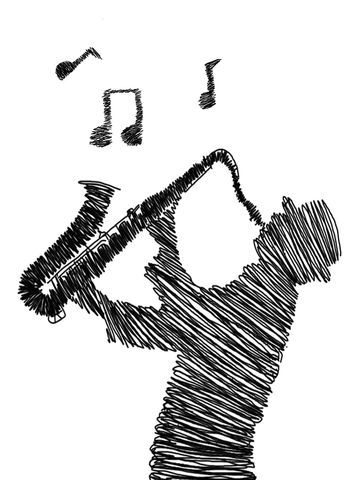Jazz, an art form as American as apple pie and baseball, is deeply rooted in our culture. And over the course of time, it has permeated through many of the genres that we appreciate today. Jazz birthed the blues (which laid the groundwork for country music), fueled the sounds of Motown, inspires the world of hip-hop, and was on the forefront of pop until the 80’s. All while living and breathing as it’s own genre that continues to be prominent across the globe. Even now, within the realm of pop music, our ears are craving more interactive rhythm sections, live instrumentation, and harmonic complexity than ever before, and that can be traced back to America’s own musical art form.
Jazz music was not crafted from “slave songs in the cotton fields”. However, that doesn’t diminish the role black culture played in the genre. Jazz did not specifically come from African American slaves, but from the African American experience, “an experience of violent dislocation and cultural deprivation, an experience of survival in the most cruel of human situations, an experience of spiritual and psychological oppression” (Tony McGregor, 2010). Jazz music was born from this experience, utilizing African stylings and meters mixed with European musical sense and theory. One of the earliest, tangible predecessors of jazz was ragtime, a genre popularized in cities such as New Orleans and performed as dance music. Ragtime’s closest companion is march style music (a European genre), for ragtime was created from it.
However, preconceived notions and ongoing misinformation about the genre have not been kind to jazz. Although some of our generation is hard at work striving toward a better, more tolerant society, residual racism perpetuates these myths in jazz music. Assumptions about how black culture ties into jazz history lead to misunderstanding and only serve to continue a paradigm that has been prevalent in America for far too long, in many different aspects.
But the pigment of your skin does not automatically give you the ability to succeed in jazz or music in general. To overlook the arduous work done to express oneself in this art is to disregard and disrespect the work every jazz musician has put into their craft. Every single great musician in the jazz world has put years of dedicated, borderline obsessive, work into their instrument. Virtuosity on an instrument is not something that appears out of thin air; it is a product of rigorous and painful practice.
Before one can speak fluently, one must first learn the language; a daunting challenge in jazz. The memorization of scales, modes, chord progressions, and melodies is essential to every jazz musician, a task not for the faint of heart. Therefore, to say that somebody who is black contains some natural ability to play jazz music is an insult to the trials and tribulations one faces when becoming a jazz musician, especially if their success is attributed to their skin color.
To marginalize and box in jazz as slave songs is to marginalize the black visionaries, musicians and intellectuals who gave birth to it. It took complex musical theory, studious work, and literal genius.
Categories:
Jazz: birthed from black genius
February 25, 2018

Illustration by Ericka Vervynckt
| Staff Illustrator
0
Donate to The University Star
Your donation will support the student journalists of Texas State University. Your contribution will allow us to purchase equipment and cover our annual website hosting costs.
More to Discover







